Commercial Trucking News, Events & Information
How Much Can an Owner-Operator Expect to Earn After All Expenses? [2025 Guide]
Find out what owner-operator truckers actually earn after all expenses—fuel, maintenance, insurance, and deadhead miles. See real net income examples, industry averages, and tips to boost your take-home pay in 2025.


The Countdown to Net-Zero Trucking: Decarbonization Targets and New EPA Rules Explained
This article unpacks the latest EPA emissions rules and decarbonization targets for U.S. trucking. Discover what’s required, how fleets are adapting, and what the journey to net-zero means for operations, costs, and competitiveness.
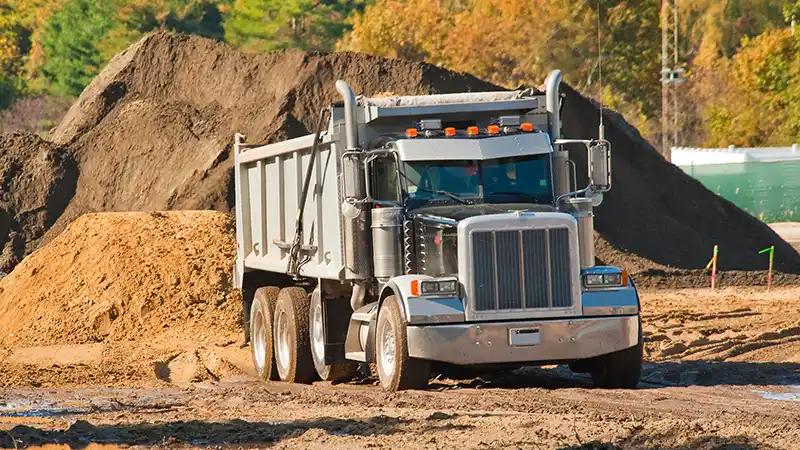
Heavy Duty Trucks Do Not Break Emissions Systems, Their Work Does
See why dump, waste, mixer, tow, logging, and municipal trucks kill DPF, DOC, SCR, DEF, and EGR systems faster than highway semis, what those failures cost, and how smarter maintenance and TruckProtect coverage help vocational fleets cut downtime and repair risk.
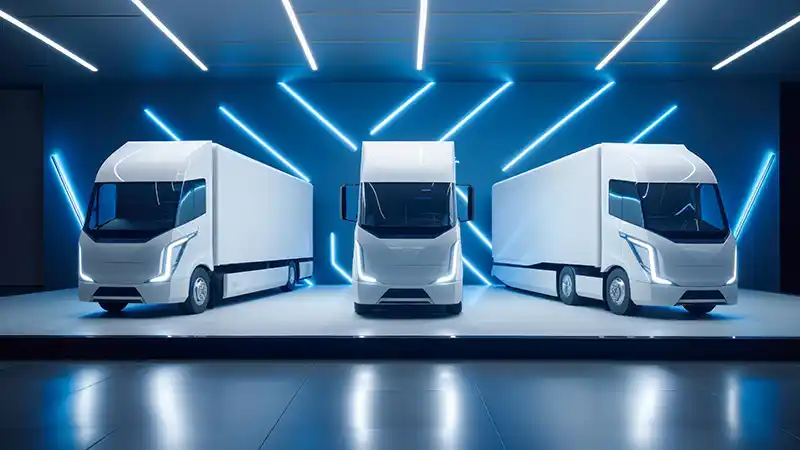
Electric, Hydrogen, or Hybrid? The Battle to Power America’s Next-Gen Semi-Trucks
This detailed feature compares electric, hydrogen fuel cell, and hybrid trucks. Explore the pros, cons, and real-world deployments of each, and see how fleets are deciding which technology will drive the next era of long-haul freight.
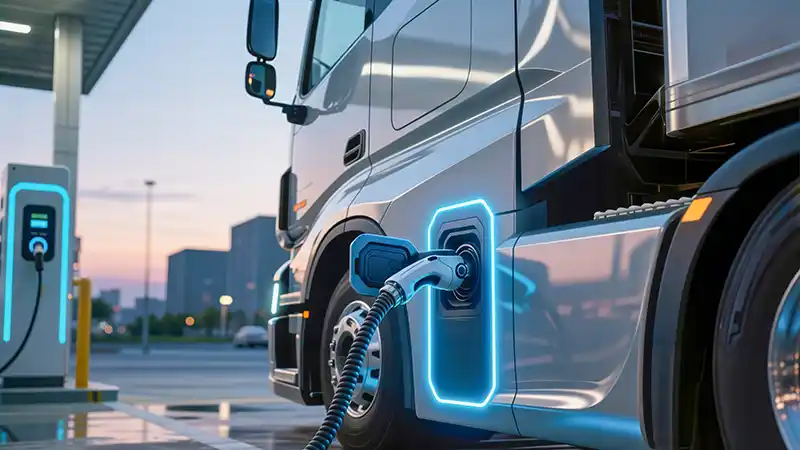
Can Battery Power Go the Distance? The Electrification Revolution in America’s Long-Haul Trucking
This comprehensive feature examines the electrification of long-haul trucking in the U.S. Dive into battery technology, charging infrastructure, regulatory drivers, and real-world pilot programs. Learn what’s possible today, what’s coming tomorrow, and how fleets can prepare for
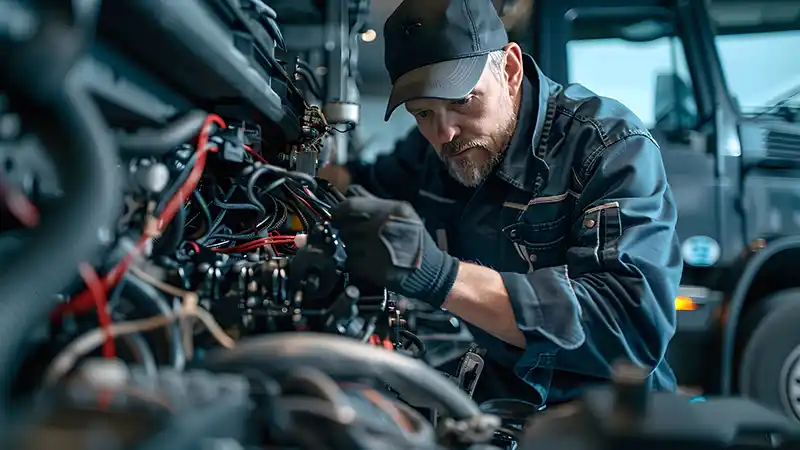
Why Electrical Failures Crush Commercial Trucks More Than Anything Else
Find out why Class 3–7 work trucks suffer more electrical failures than semis, which parts fail most, what repairs really cost, and how better specs, maintenance, and TruckProtect coverage help fleets cut downtime and stabilize electrical repair spend.

Drones and Trucks Unite: How Hybrid Delivery Models Are Transforming Final-Mile Freight
This article explores the rise of drone and truck hybrid delivery models in freight. Learn how these systems work, the regulatory and operational challenges, and how they could reshape last-mile logistics for carriers and customers.
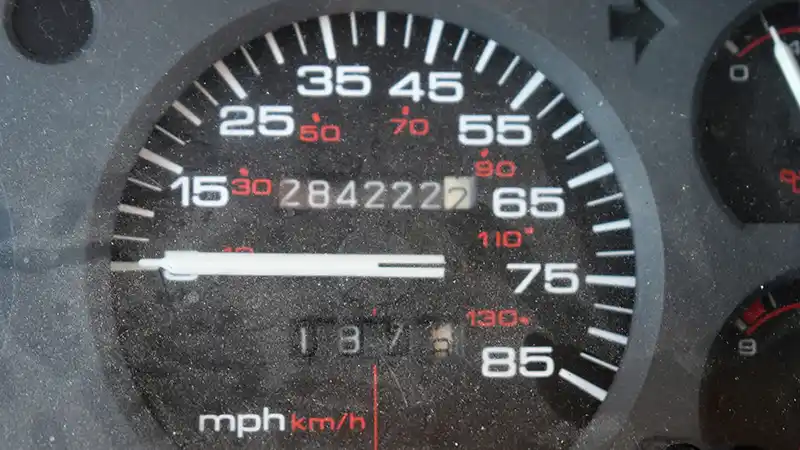
400,000 Miles, The Turning Point in a Semi Truck’s Life
This deep-dive explains why 400,000 miles is a turning point in a semi truck’s life and breaks down the most common failures that show up after this mileage, from aftertreatment and turbo issues to injectors, cooling, electrical, transmission, and internal engine wear.
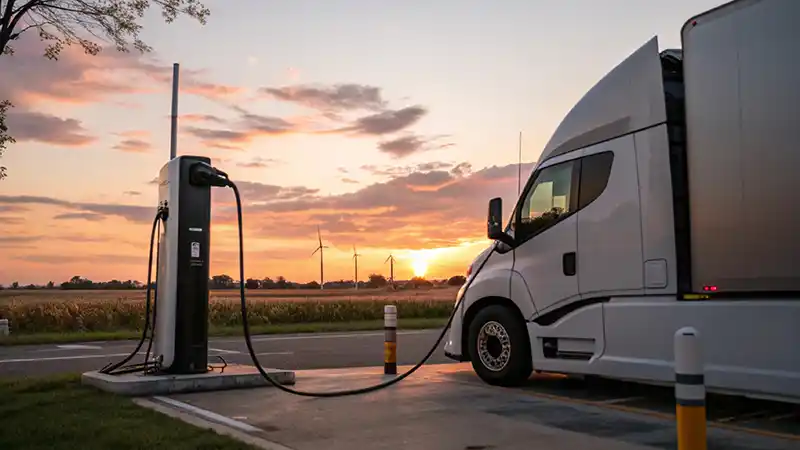
Diesel Meets Electric: The Future of Platooning and Hybrid Fleet Coordination
This in-depth feature examines how mixed electric and diesel platooning is emerging as a cost-cutting, efficiency-boosting strategy for hybrid fleets. Learn about the technology, operational hurdles, and real-world pilot programs leading the charge.

Transfer Hubs and the Rise of Autonomous Trucking: Unlocking the Middle Mile
This feature explores the rise of Autonomous Transfer Hub Networks (ATHNs) and their role in enabling scalable, safe autonomous trucking. Learn how these hubs work, who’s building them, and what they mean for fleets, drivers, and the future of freight.

7 Things Truckers Are Thankful for This Thanksgiving (That Most People Don’t Think About)
Thanksgiving looks different when you run a truck or small fleet. This post shares 7 things truckers are truly thankful for, from on-time loads to fewer surprise repair bills with TruckProtect™.

Inside the 2025 ATRI Report: What Drivers and Fleets Say Are Trucking’s Biggest Challenges
This article analyzes the 2025 ATRI Top Industry Issues Survey, highlighting the most pressing challenges reported by drivers and fleets. From driver shortages to regulations and technology, get insights into what’s keeping industry leaders up at night.

Tariffs and Trade Policy Shocks: How U.S. Trucking Is Navigating a New Era of Disruption
This article examines the impact of recent tariff and trade policy changes on U.S. freight carriers. Discover how routes, costs, and customer relationships are shifting, and what strategies successful fleets are using to navigate the new landscape.
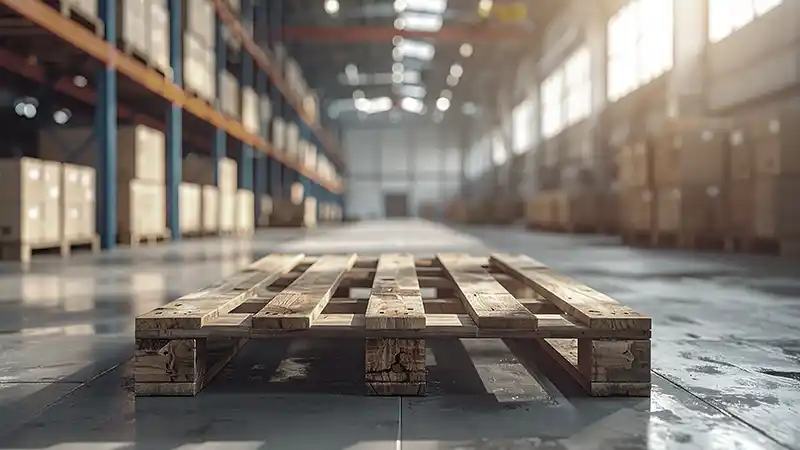
Freight Volumes Keep Falling: Is Trucking Facing a New Recession in 2025?
This in-depth analysis explores the ongoing softening of freight volumes in 2025. Examine the macroeconomic trends, sector-specific impacts, and expert predictions for the year ahead. Learn what proactive fleets are doing to manage risk and spot opportunities in a cooling market.
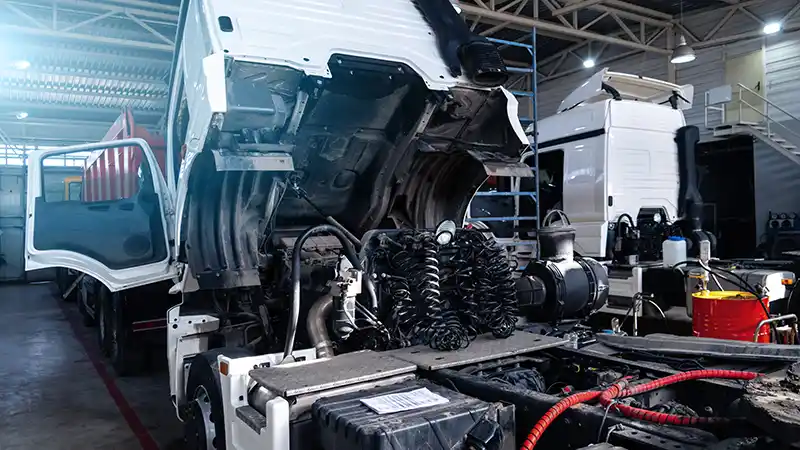
Ultimate Guide to Diesel Aftertreatment and DPF Warranty Coverage for Commercial Trucks
Aftertreatment and DPF system failures are among the most expensive and disruptive issues facing commercial truckers today. This comprehensive guide explains what aftertreatment is, why most warranties fall short, and how TruckClub™’s Pro and Elite plans deliver unmatched protect
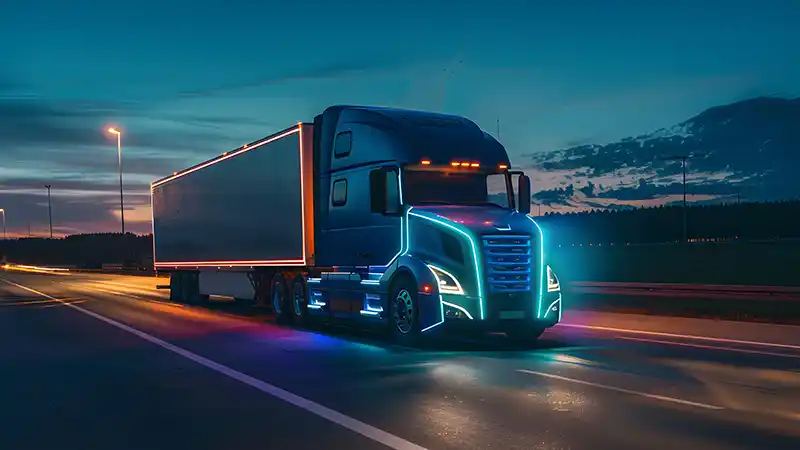
Aurora’s Texas Breakthrough: How Driverless Semis Are Redefining Freight Logistics
This feature covers Aurora’s rollout of fully driverless semi-trucks on Texas highways. Explore the technology, safety protocols, operational models, and what this launch means for shippers, carriers, and the future of long-haul logistics.

Best Practices for Fleet Warranty Management: Maximize Coverage, Minimize Downtime
This in-depth guide reveals the best practices for managing warranties across your truck fleet. Learn how to track coverage, train your team, leverage technology, and optimize claims for maximum value. Real-world examples, common mistakes, and actionable steps.

Manufacturer vs. Third-Party Truck Warranties: What’s Best for Your Fleet?
This article reveals the true financial impact of truck repairs, going far beyond the repair invoice. Learn about the indirect costs,like lost revenue, rentals, and administrative headaches,that can devastate owner-operators and fleets.

Hidden Costs of Truck Repairs: What Every Fleet and Owner-Operator Needs to Know
This article reveals the true financial impact of truck repairs, going far beyond the repair invoice. Learn about the indirect costs,like lost revenue, rentals, and administrative headaches—that can devastate owner-operators and fleets.

The Ultimate Guide to Truck Warranties
This in-depth guide explains what truck warranties are, why they matter, and how they work for owner-operators and fleets. You’ll learn about manufacturer and third-party coverage, key features to look for, and how to make a smart, informed decisions that protects your trucks.

How TruckProtect™ Saves Fleets Thousands in Unexpected Repairs
Unplanned repairs, towing, and downtime can quickly spiral into thousands of dollars in losses, not to mention the ripple effects on customer commitments and driver morale.

The Future of Trucking Insurance: Trends and Innovations
The future of trucking insurance is here, bringing with it a wave of innovation and customer-focused solutions.

Emerging Trends in Truck Protection Plans & Warranties
The trucking industry is on the brink of a new era in protection plans and aftermarket warranties. By embracing technological advancements and adapting to emerging risks, truck owners and operators can ensure comprehensive protection and peace of mind.

Unveiling Aftermarket Coverage: Understanding Hidden Truths
TruckClub™ provides comprehensive aftermarket coverage for trucks, focusing on clarity and fairness, and explicitly detailing coverage for each part, including those prone to progressive damage, to avoid the common industry pitfalls of hidden limitations and vague terms.

Unveiling the Truth Behind Aftermarket Warranty Caps: A TruckClub Guide
This blog highlights the complexities of aggregate and package caps in aftermarket vehicle protection, and introduces TruckClub's simplified approach to liability limits.

The Nature of Truck Warranties
This article discusses the complexities of OEM and aftermarket vehicle warranties, emphasizing the importance of being well-informed when navigating these options, and introduces TruckClub™, a company aiming to provide transparent and fair aftermarket coverage.

Top Reasons Aftermarket Providers Deny Your Claim
TruckClub™ counters common aftermarket coverage pitfalls by covering wear, aligning with OEM maintenance intervals, providing continued operation protection, and maintaining transparency about initiation period requirements.

TruckClub's Innovative Approach to Continued Operation Coverage
TruckClub™ is revolutionizing the trucking industry with flexible policies like FinalStretch™ coverage, acknowledging the need for continued operation, thus truly supporting and empowering truckers on their journeys.

Decoding the Fine Print: Uncovering Warranty Pitfalls
This blog highlights the importance of understanding the fine print in aftermarket coverage, detailing common pitfalls, and offering insights to help owner-operators make informed decisions, with a focus on TruckClub™'s commitment to transparency and comprehensive coverage.

The Countdown to Net-Zero Trucking: Decarbonization Targets and New EPA Rules Explained
This article unpacks the latest EPA emissions rules and decarbonization targets for U.S. trucking. Discover what’s required, how fleets are adapting, and what the journey to net-zero means for operations, costs, and competitiveness.

How a New English Test Sidelined 6,000 U.S. Truck Drivers and Disrupted the Industry
This in-depth report investigates the sudden removal of 6,000 truck drivers due to new English language testing requirements. Find out how the policy works, who is affected, and what it means for recruitment, safety, and supply chains.
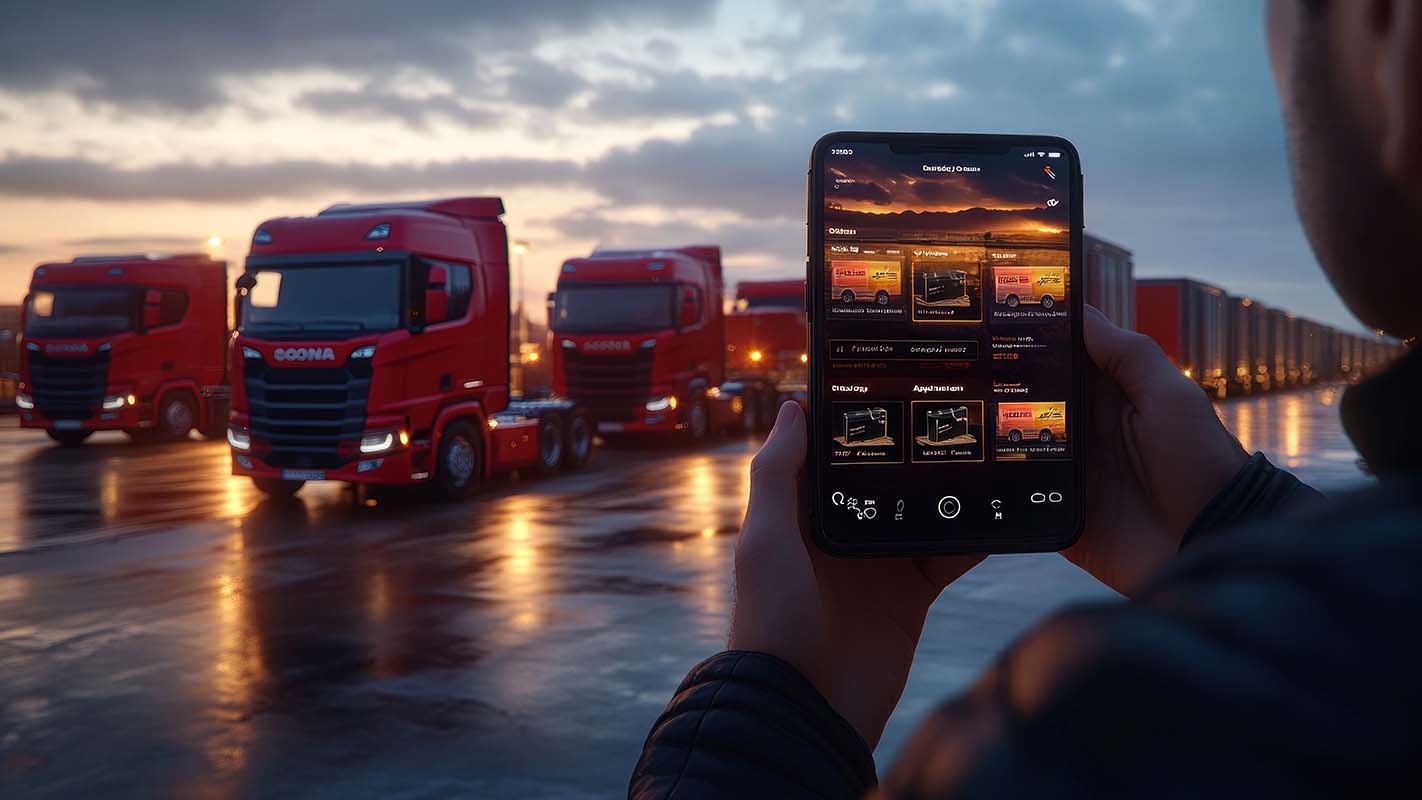
Transfer Learning for Predictive Safety Analytics: Smarter Accident Prevention Through Shared Data
Transfer learning is ushering in a new era of trucking safety analytics by enabling AI models to learn from safety data pooled across multiple companies.

Reduced Trucking Oversight: How Changing Politics Shaped FMCSA Enforcement and Highway Safety
Under the Trump administration, the number of enforcement cases initiated by the agency dropped by almost 60 percent compared to previous years.

When Innovation Hits a Red Light: Aurora’s Fight Against Legacy Truck Safety Rules
Discover why Aurora Innovation is suing the U.S. Department of Transportation over 1970s-era reflective triangle rules.

Trucking Regulations to Watch Out for in 2025
Key trucking regulations to watch out for in 2025, strategies for maintaining compliance, resources for staying updated.

Heavy Duty Trucks Do Not Break Emissions Systems, Their Work Does
See why dump, waste, mixer, tow, logging, and municipal trucks kill DPF, DOC, SCR, DEF, and EGR systems faster than highway semis, what those failures cost, and how smarter maintenance and TruckProtect coverage help vocational fleets cut downtime and repair risk.

Why Electrical Failures Crush Commercial Trucks More Than Anything Else
Find out why Class 3–7 work trucks suffer more electrical failures than semis, which parts fail most, what repairs really cost, and how better specs, maintenance, and TruckProtect coverage help fleets cut downtime and stabilize electrical repair spend.

400,000 Miles, The Turning Point in a Semi Truck’s Life
This deep-dive explains why 400,000 miles is a turning point in a semi truck’s life and breaks down the most common failures that show up after this mileage, from aftertreatment and turbo issues to injectors, cooling, electrical, transmission, and internal engine wear.

Ultimate Guide to Diesel Aftertreatment and DPF Warranty Coverage for Commercial Trucks
Aftertreatment and DPF system failures are among the most expensive and disruptive issues facing commercial truckers today. This comprehensive guide explains what aftertreatment is, why most warranties fall short, and how TruckClub™’s Pro and Elite plans deliver unmatched protect

Understanding the Benefits of Predictive Maintenance in Trucking
We'll take a deep dive into what predictive maintenance is, how it works in the trucking industry, its key benefits, the tools and software available.

Essential Preventive Maintenance: Keeping Trucks Rolling
Every dollar spent on preventive maintenance saves multiple dollars in emergency repairs and downtime.

Understanding Your Truck's ECM: The Brain Behind the Engine
The most successful operators treat their ECM as a partner in their operation, learning its language and responding to its warnings.

Guide To Maintaining Your Aftertreatment System
Modern aftertreatment systems work like a three-stage filter for your exhaust. The DOC starts the process, the DPF catches the particles, and the SCR system handles the NOx emissions. When properly maintained, these systems remove up to 98% of harmful emissions – but they require

Can Battery Power Go the Distance? The Electrification Revolution in America’s Long-Haul Trucking
This comprehensive feature examines the electrification of long-haul trucking in the U.S. Dive into battery technology, charging infrastructure, regulatory drivers, and real-world pilot programs. Learn what’s possible today, what’s coming tomorrow, and how fleets can prepare for

Inside the 2025 ATRI Report: What Drivers and Fleets Say Are Trucking’s Biggest Challenges
This article analyzes the 2025 ATRI Top Industry Issues Survey, highlighting the most pressing challenges reported by drivers and fleets. From driver shortages to regulations and technology, get insights into what’s keeping industry leaders up at night.

Tariffs and Trade Policy Shocks: How U.S. Trucking Is Navigating a New Era of Disruption
This article examines the impact of recent tariff and trade policy changes on U.S. freight carriers. Discover how routes, costs, and customer relationships are shifting, and what strategies successful fleets are using to navigate the new landscape.

Freight Volumes Keep Falling: Is Trucking Facing a New Recession in 2025?
This in-depth analysis explores the ongoing softening of freight volumes in 2025. Examine the macroeconomic trends, sector-specific impacts, and expert predictions for the year ahead. Learn what proactive fleets are doing to manage risk and spot opportunities in a cooling market.
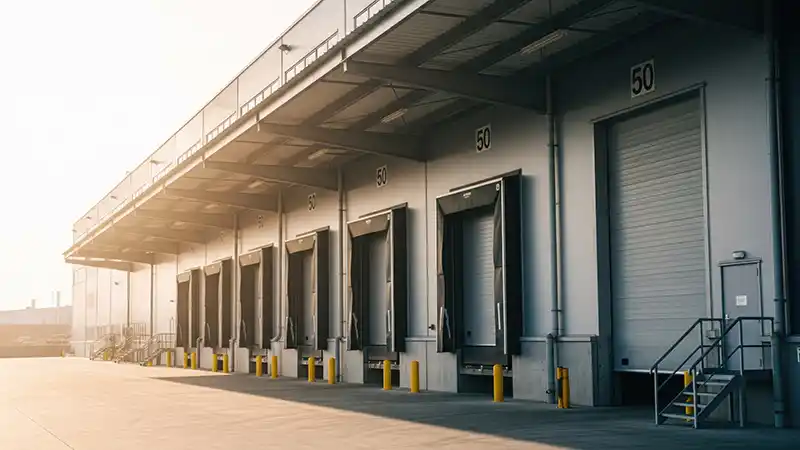
Volvo Warns of Freight Slowdown Through 2026,
This comprehensive analysis explores Volvo’s reduced North American forecast and its warning of a sustained freight slowdown through 2026. Discover the causes behind the slump, how it’s impacting truck orders, rates, and fleet operations,.

Policy Shifts, Fuel Prices & Financing: Preparing Trucking Operations for 2025
Trucking in 2025 faces new trade policies, volatile fuel prices, shifting interest rates, and major infrastructure investments—each reshaping operations, costs, and strategic planning across the industry.

Market Recovery Trends: Spot Rates & Freight Capacity in 2025
Spot rates are expected to rebound by late 2025 as freight demand strengthens and capacity tightens, signaling a gradual but meaningful recovery for carriers and shippers after a sluggish start to the year.

The Driver Shortage in Trucking: Causes, Impacts, and Solutions for 2025
The trucking industry faces a major driver shortage in 2025. Learn what’s causing it, how it affects freight, and what solutions are emerging for fleets, shippers, and drivers.

2025’s Top Industry Issues—ATRI Survey Preview: What’s Shaping Trucking’s Future?
ATRI’s 2025 Top Industry Issues Survey is open until October 10, giving trucking professionals a voice on the sector’s biggest challenges. Findings will be revealed at ATA’s October conference, shaping the industry’s agenda for the year ahead.

Freight Data & Route Optimization for Shippers: Navigating Trends and Maximizing Margins
Shippers are leveraging freight data, load boards, and TMS platforms to navigate rate trends and optimize routes, securing better margins and building resilience in a dynamic logistics market.

ACT Research’s 2025 Industry Forecast: Rebalancing Begins as Trucking Eyes Gradual Recovery
ACT Research’s 2025 forecast signals trucking’s slow climb from 2023’s low point, with high interest rates and inventory pressures shaping a cautious, gradual recovery and a new era of industry rebalancing.

Multi-carrier relay networks optimize cost, speed, and sustainability
The less-than-truckload (LTL) sector faces mounting pressure to deliver more value with fewer resources.

How Organized Crime Is Targeting Copper Shipments in 2025
Copper theft has surged by 61 percent this year, turning the humble metal into a hot commodity for organized crime rings.

The Real Story Behind Surging U.S.– Mexico and Canada Trucking Rates
As tariff deadlines approached and trade negotiations heated up, both shippers and carriers found themselves in a race against the clock.

Trucking Tech 2025: The Year’s Biggest Launches, Innovations, and Industry Events
This in-depth feature covers the most important trucking technology launches and events of 2025. Discover the trends, products, and industry gatherings that are driving innovation in safety, efficiency, and sustainability for fleets nationwide.

Electric, Hydrogen, or Hybrid? The Battle to Power America’s Next-Gen Semi-Trucks
This detailed feature compares electric, hydrogen fuel cell, and hybrid trucks. Explore the pros, cons, and real-world deployments of each, and see how fleets are deciding which technology will drive the next era of long-haul freight.

Drones and Trucks Unite: How Hybrid Delivery Models Are Transforming Final-Mile Freight
This article explores the rise of drone and truck hybrid delivery models in freight. Learn how these systems work, the regulatory and operational challenges, and how they could reshape last-mile logistics for carriers and customers.

Diesel Meets Electric: The Future of Platooning and Hybrid Fleet Coordination
This in-depth feature examines how mixed electric and diesel platooning is emerging as a cost-cutting, efficiency-boosting strategy for hybrid fleets. Learn about the technology, operational hurdles, and real-world pilot programs leading the charge.

Transfer Hubs and the Rise of Autonomous Trucking: Unlocking the Middle Mile
This feature explores the rise of Autonomous Transfer Hub Networks (ATHNs) and their role in enabling scalable, safe autonomous trucking. Learn how these hubs work, who’s building them, and what they mean for fleets, drivers, and the future of freight.

Aurora’s Texas Breakthrough: How Driverless Semis Are Redefining Freight Logistics
This feature covers Aurora’s rollout of fully driverless semi-trucks on Texas highways. Explore the technology, safety protocols, operational models, and what this launch means for shippers, carriers, and the future of long-haul logistics.
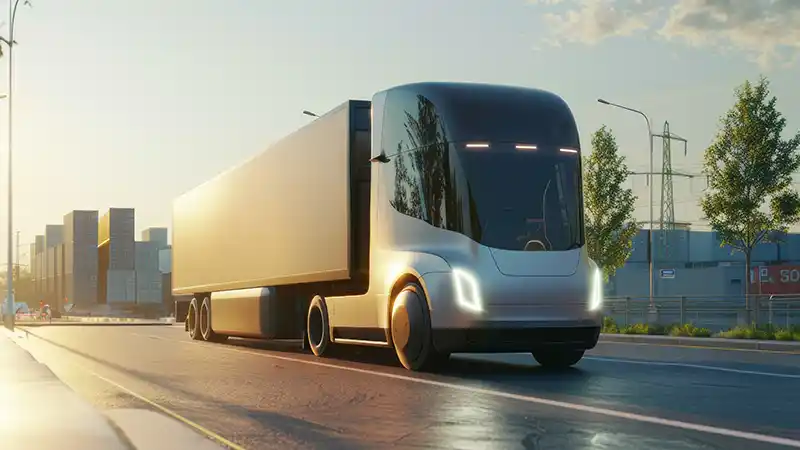
Night Moves: Texas Leads the Surge in 24/7 Autonomous Trucking
This article explores the rapid expansion of autonomous, driverless trucks operating around the clock in Texas. Learn about the technology powering these vehicles, the regulatory and safety challenges, and how fleets, drivers, and communities are preparing for a new era.

Industry Technology in Focus: Integrating Sustainability & Innovation in Trucking
Fleet electrification, autonomous tech, data-driven logistics, and evolving driver expectations are reshaping trucking. The industry’s push for sustainability and innovation is redefining operations, competitiveness, and the driver experience in 2025.

Fleet Electrification & AI-Driven Digitalization: The Next Chapter in Trucking Innovation
Electric trucks and AI-powered fleet tools are reshaping trucking. Fleets are embracing these next-gen technologies to boost efficiency, cut emissions, and gain a competitive edge in a rapidly evolving industry.

Energy-Efficient Autonomous Truck Routing: How Smart Trajectory Planning Drives Billions in Fuel Savings
New autonomous routing methods boost diesel truck fuel economy by over 7%. Smart trajectory planning powered by AI and real-time data is saving billions, cutting emissions, and setting a new standard for sustainable, profitable freight.

Greenlane EV Corridors: Powering the Future of Trucking with High-Speed Charging Infrastructure
As the world moves toward decarbonization and sustainability, electrification is no longer just a buzzword—it’s a business imperative.
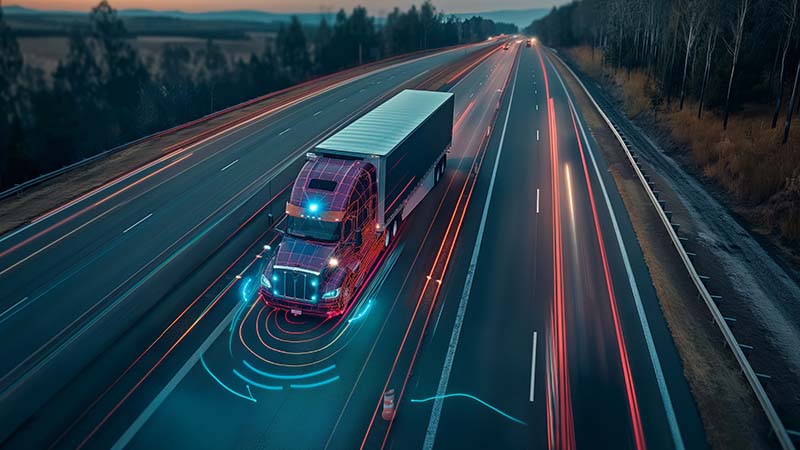
Inside Torc Robotics’ 2025 Playbook
At the heart of this transformation is Torc Robotics, a company with deep expertise in self-driving technology and a clear mission: to make autonomous trucking safe, scalable, and trusted.
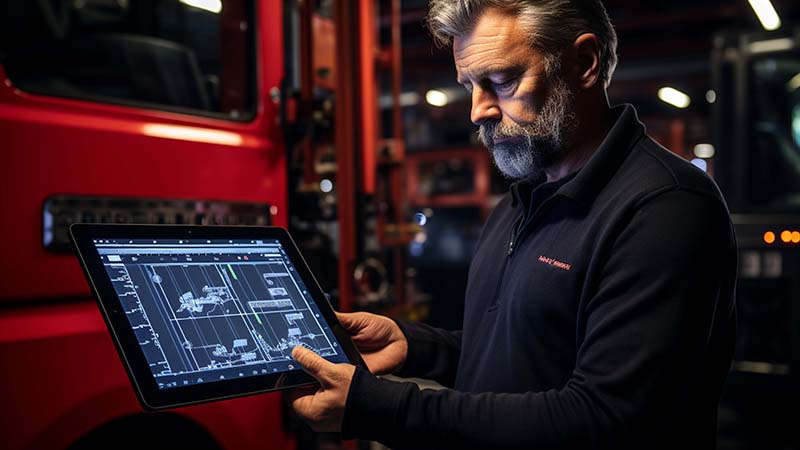
How Penske’s AI and Telematics Are Transforming Preventative Fleet Maintenance
Every minute a truck is off the road for maintenance or repair translates into lost revenue, missed deadlines, and frustrated customers.

7 Things Truckers Are Thankful for This Thanksgiving (That Most People Don’t Think About)
Thanksgiving looks different when you run a truck or small fleet. This post shares 7 things truckers are truly thankful for, from on-time loads to fewer surprise repair bills with TruckProtect™.

Nutrition and Healthy Eating on the Road for Owner-Operators
Maintaining a balanced diet is one of the biggest challenges for owner-operators who spend long stretches on the road. With limited healthy options at truck stops and unpredictable schedules, it’s easy to fall into the trap of fast food and snacks.

Integration of Wearable Technology for Truck Drivers
Wearable technology, like fitness trackers and smartwatches—is quickly becoming a must-have for truck drivers. These devices help monitor health, track sleep, and encourage movement, empowering drivers to make smarter choices and maintain their well-being while on the road.
Subscribe to News & Events
Don’t miss out on the latest news, tips, and industry trends. Subscribe to our blog and get valuable insights delivered straight to your inbox!
The content provided on this blog is for informational purposes only and does not constitute professional advice. TruckClub™ and its employees make no representations or warranties regarding the accuracy, reliability, or completeness of the information presented. Any reliance on this content is at your own risk.TruckClub™ and its employees are not liable for any direct, indirect, incidental, or consequential damages arising from the use of this blog or reliance on its content. For specific advice or guidance, please consult a qualified professional.This blog may include links to third-party websites for your convenience. TruckClub™ is not responsible for the accuracy, content, or availability of any linked sites and does not endorse the views or information they contain.By accessing or using this blog, you agree to these terms. This disclaimer is subject to change without notice.













